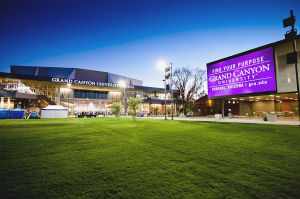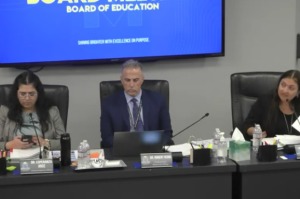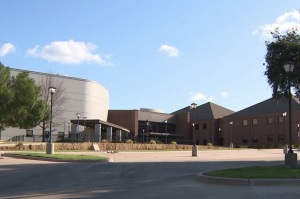Leadership Lessons from President Ronald W. Reagan
Today's state funeral for President Ronald W. Reagan offers an historic moment of reflection for the American people. Central to that should be a renewed appreciation for the founders' vision of the presidency as a uniting force for leadership in the nation.
Reflecting on this, several vital leadership lessons emerge from the legacy of Ronald W. Reagan. Even as historians and scholars attempt to measure the Reagan legacy and its contribution to the nation, these lessons serve to remind us of Reagan's greatness, and of how he restored confidence and luster to the highest office of the land.
1. The Power of Ideas. As has often been acknowledged, some individuals seek elected office in order to be something; others seek the office in order to do something. Ronald Reagan was a doer, and he was driven by a clear set of ideas that animated his life, shaped his decisions, and fueled his passion.
Critics continually attempted to convince the American public that Ronald Reagan was something of an "amiable dunce," simply parroting the lines given him by his handlers. Nothing could be farther from the truth. Ronald Reagan developed the core ideas of his political philosophy as he made his transition from a Roosevelt Democrat to the great leader of the Republican Party. His ideas were established in an assumption that the American people should solve their own problems, that government is more often the problem than the solution, that subsidizing unproductive behavior would lead to unproductive results, and that America should steadfastly defend its interests in the world for the cause of freedom.
The publication of two volumes presenting Reagan's letters and radio messages, most written in his own hand, indicates the fertility of Ronald Reagan's mind and the firm and energetic power of his ideas. This reality stands at the core of Ronald Reagan's leadership in America and on the world scene--he was driven by ideas passionately held and boldly defended.
2. The Grounding of Conviction. Ronald Reagan's ideas were translated into deep conviction. This was a man who knew himself, was comfortable in his own skin, and was driven by a deep convictional commitment to the ideas he held and taught to the nation. This was not a man who had to scramble to determine how he would answer a reporter's question or address a new challenge. Ronald Reagan operated out of a deep reservoir of conviction that served both as a steadying ballast and a source of energy for his leadership.
In essence, this meant that Reagan's commitment to his political philosophy and worldview were not only matters of the head, but of the heart. This quality of conviction separates mediocre leaders from great ones, for greatness is impossible apart from conviction.
3. The Imperative of Communication. By any measure, Ronald Reagan deserved his reputation as the "Great Communicator." His gift for the use of language and voice, combined with a compelling presentation in an animated style, led Reagan to success in Hollywood and later on the global scale of international affairs. Leadership finds its essence in influence, and influence requires communication. In the end, leadership can only take place when ideas and convictions are transferred from one mind to another.
Reagan was a master at communication, both in person and on the television screen. His background as an actor was, no doubt, a great asset in this respect. Nevertheless, it was Reagan's ability that explained his success as an actor--not the other way around.
Leaders must learn that communication is an irreducible part of the leadership challenge. An individual of bold ideas and deep conviction who is unable to communicate those realities to others is no leader, no matter how brilliant. Reagan dominated the communications media of his day, offering a model to other leaders of what can happen when a convictional leader rises to the communication challenge. Ronald Reagan came alive in front of a camera, a microphone, or a crowd. He communicated confidence, even before he communicated his powerful ideas.
4. The Urgency of Energy. From the beginning, Ronald Reagan was a man in motion. As President, Reagan communicated this energy by his own physicality, by his confident stride and his obvious health and vigor. All this was even more remarkable, given the fact that Ronald Reagan was elected to the presidency at age 69, when many men have already entered a period of retirement.
Reagan's personal energy was also demonstrated time and time again as he took reporters to his ranch outside Santa Barbara and showed them how to split rails, chop wood, and handle horses. Many of these observers were themselves a generation or two younger than the President, but Ronald Reagan wore them out with his seemingly boundless energy.
More importantly, Reagan transferred that energy into his political leadership and statesmanship. He brought serious ideas to the table and presented them with energy, forcing Congress to pass his legislation and disciplining an out-of-control bureaucracy. As biographer Edmond Morris commented, Ronald Reagan was a "force of nature."
5. The Charisma of Confidence. In one of the great moments of American political theater, Archie Bunker of television's "All in the Family" debated his liberal sister-in-law, Maude, about the presidential leadership of Franklin D. Roosevelt. Archie had just zinged Roosevelt as a big-spending liberal when Maude responded, "That man had charisma!" Archie quickly responded, "I don't care if the man was sick."
Well, charisma is no sickness, nor is it an inexplicable gift. Whatever charisma is, Ronald Reagan had it, and had it big. But in Reagan's case, that charisma was deeply rooted in his personal confidence.
Ronald Reagan's unique charisma explains how he could convey his ideas and passions so freely to other people. Some persons influenced by the "Reagan touch" later reflected that they were not sure why they agreed with the President, they just knew that they did. The President's confidence was contagious, and it conveyed to the nation a sense of optimism and purpose in the world.
6. The Role of Symbolism. When Ronald Reagan entered the Oval Office for the first time, he set a style and standard that endured throughout the eight years of his administration. President Reagan never entered that historic room without wearing a coat and tie. He was usually seen in tailored suits, cut to a traditional pattern and reflecting the gravity of his office. His crisp white shirts, his French cuffs and links, and his graceful body language reasserted a symbolic seriousness to the presidency.
That style was extended to everything from the way a platform was arranged when the President spoke, to photographs showing the President surrounded by the symbolism of flags, American eagles, and other patriotic symbols. Ronald Reagan set out to show the nation once again how a President should look and should present his stature and office to the world. This was a key secret to Ronald Reagan's leadership, statesmanship, and impact on the nation and the world.
7. The Gathering of a Team. From his earliest years as governor of California, Ronald Reagan pulled together a constellation of outstanding men and women who would serve with him throughout the remainder of their lives. His administration in California included officials like Casper Weinberger and Edwin Meese, both of whom would later serve as Cabinet officers within the Reagan administration. Beyond this, Reagan continually pulled in some of the nation's most gifted and capable leaders, making them key members of his personal team and blending a unique assortment of gifts, abilities, and interests into an administration that changed history.
Great leaders inspire confidence and have a knack for hiring and attracting the right individuals to fill out a leadership team. Few have understood this so clearly as did Ronald Reagan, and to such lasting effect. Today's funeral and related events will be a reunion of sorts for those who are the veterans of Team Reagan. If they had the opportunity, we can be certain they would do it all over again.
8. The Importance of Allies. Ronald Reagan understood that, as President, he occupied the most powerful office in the world. At the same time, he knew that both he and his nation would require critical allies on the world stage. Nothing symbolizes Reagan's ability to cement relations with allies more than his relationship with Margaret Thatcher, Britain's "Iron Lady" and Reagan's great friend. As Thatcher was later to reflect, "As soon as I met Governor Reagan, I knew that we were of like mind, and manifestly so did he. We shared a rather unusual philosophy and we shared something else rather unusual as well: we were in politics because we wanted to put our philosophy into practice." Their first meeting took place when Margaret Thatcher was the leader of Britain's opposition party and Ronald Reagan was governor of California. Later, when Margaret Thatcher was Britain's Prime Minister and Ronald Reagan was America's Chief Executive, they represented a "dynamic duo" on the world scene that was instrumental in winning the Cold War. Great leaders develop great alliances and forge personal friendships with great allies.
9. The Horizon of Vision. Ronald Reagan was not only the Great Communicator, he was a leader of vision--and that vision had content. He was able to paint pictures with words, and to construct a vision for America and the world that was gloriously compelling. When he spoke of America's greatness and the nation's role in the world, he inspired Americans to be their best, do their best, and believe the very best about their nation. He pointed to a bold future and gave the nation confidence that this vision could be achieved.
10. The Credibility of Character. In the end, character matters more than anything else. As Peggy Noonan, President Reagan's speechwriter, was later to comment: "In a president, character is everything. A president doesn't have to be brilliant; Harry Truman wasn't brilliant and he helped save Western Europe from Stalin. He doesn't have to be clever; you can hire clever. White Houses are always full of quick-witted people with ready advice on how to flip a senator or implement a strategy. You can hire pragmatic, and you can buy and bring in policy wonks, but you can't buy courage and decency, you can't rent a strong moral sense. A president must bring those things with him." President Reagan did bring those things with him, and they stayed with him. Even when his opponents criticized his decisions, they could never convince the American people that Ronald Reagan was committed to anything less than total integrity, sacrificial leadership, and clarity of purpose.
All of these attributes, but especially Reagan's moral character, explain why millions upon millions of Americans are joined together this day in a spirit of mourning, mixed with thankfulness. Even in his death, Ronald Reagan teaches the nation the true meaning of leadership.
________________________________
Original source: Crosswalk.com




























